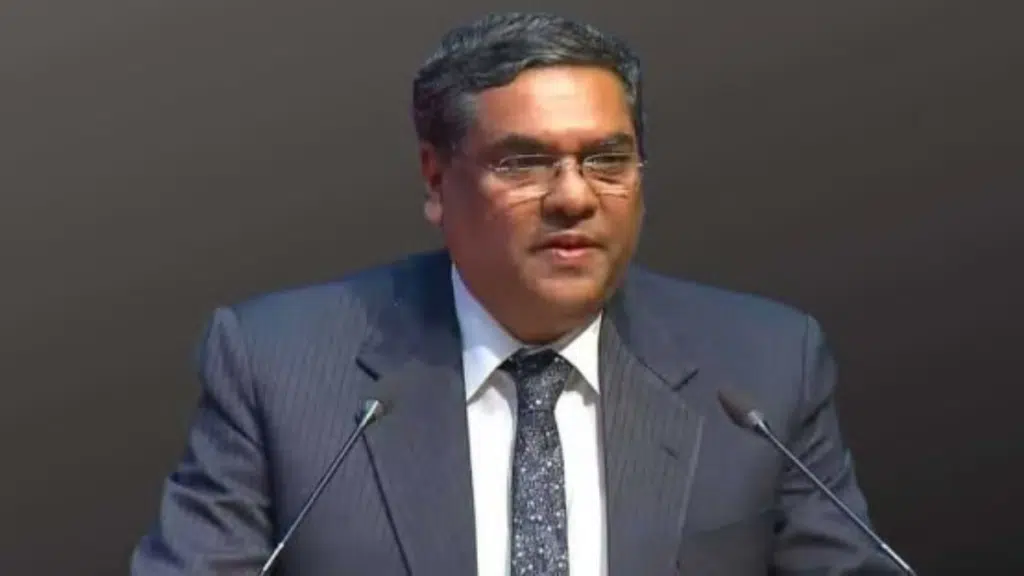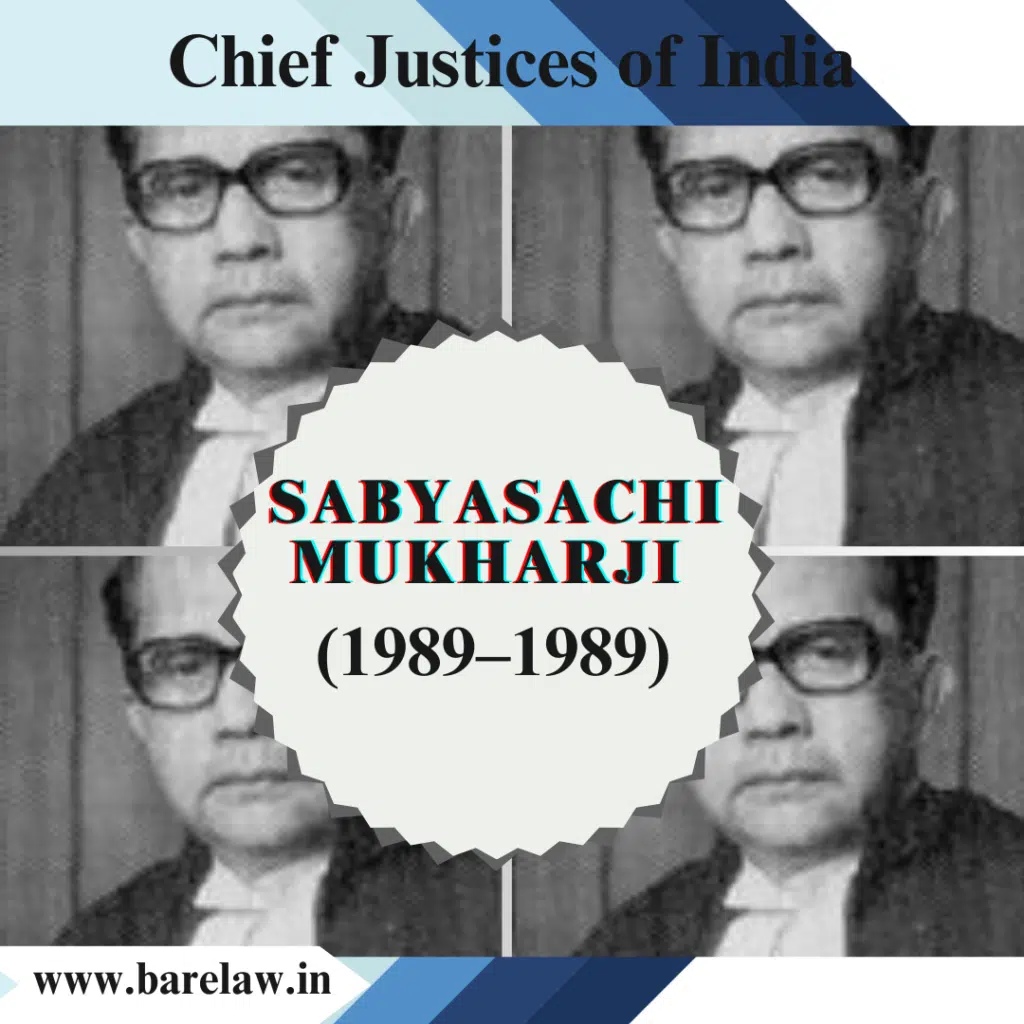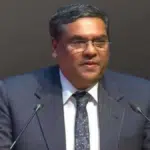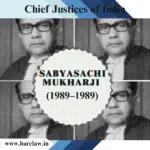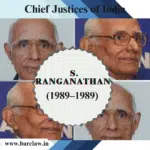Justice Bhushan Ramkrishna Gavai, a Supreme Court Judge of India since 2019, is renowned for his commitment to social justice and landmark judgments on constitutional and administrative law. Born in Maharashtra, he carries forward a legacy of equality inspired by Dr. B.R. Ambedkar. Set to become the 52nd Chief Justice of India, his contributions uphold the values of fairness and representation in the judiciary.
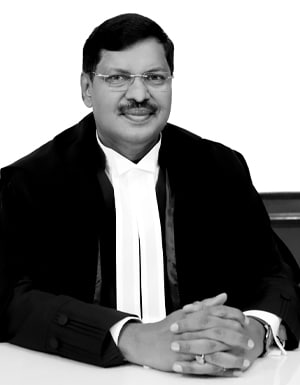
All About Justice Bhushan Ramkrishna Gavai
Justice Bhushan Ramkrishna Gavai, born on November 24, 1960, in Amravati, Maharashtra, is a distinguished jurist currently serving as a Judge of the Supreme Court of India. His legal career, spanning several decades, is marked by significant contributions to the Indian judiciary.
Early Life and Education
Dr B.R. Ambedkar and Buddhism have deeply influenced Justice Gavai’s family. His father was R.S. Gavai, a noted social activist, leader of the Republican Party of India (Gavai faction), Member of Parliament, and former Governor of Bihar and Kerala. His commitment to social justice and equality in this environment strongly influenced him.
Legal Career
Justice Gavai enrolled as an advocate on March 16, 1985, after completing a Bachelor of Arts and Bachelor of Laws (B.A, LL.B) from Nagpur University. His legal practice began under the mentoring of late Barrister Raja S. Bhonsale, former Advocate General and Judge of Bombay High Court. He practised constitutional and administrative law independently at the Bombay High Court from 1987 to 1990. After 1990, he mainly practised at the Nagpur Bench of Bombay High Court.
He was standing counsel for the Municipal Corporations of Nagpur and Amravati and to Amravati University. He represented SICOM and DCVL and various autonomous bodies, corporations, and municipal councils of Vidarbha regions. Appointed Assistant Government Pleader and Additional Public Prosecutor, Nagpur Bench, in August 1992; became Government Pleader and Public Prosecutor for the same bench in January 2000.
Judicial Appointments
Justice Gavai was elevated as an Additional Judge of the Bombay High Court on November 14, 2003, and became a Permanent Judge on November 12, 2005. During his tenure, he served benches on a wide variety of cases at the Principal Seat in Mumbai and its benches at Nagpur, Aurangabad, and Panaji.
Due to his judicial acumen and integrity, he was elevated to the Supreme Court of India on May 24, 2019. Even as the Supreme Court Collegium headed by CJI TS Thakur recommended his elevation, the judiciary pointed out that seniority, integrity, merit, and due representation in the Supreme Court weighed upon them.
Notable Judgments
Throughout his tenure, Justice Gavai has authored and been part of several landmark judgments:
- Demonetization Verdict (2023): In Vivek Narayan Sharma v., The majority opinion, authored by Union of India Justice Gavai, upheld theUnion’ss 2016 demonetization scheme as proportionate to the stated objectives of the Union and as reasonably implemented. SC Observer
- Freedom of Speech of Public Functionaries (2023): In Kaushal Kishor v. The Constitution Bench, which included Justice Gavai among its members, said it was essential to protect free speech in a democracy as it ruled against introducing further restrictions on freedom of speech of ministers in the State of Uttar Pradesh.
- Bribery Charges and Circumstantial Evidence (2022): Neeraj Dutta v. The Bench held that a public official can be convicted of bribery using circumstantial evidence even though direct evidence may not be available from the complainant.
Future Prospects
Following the seniority convention, if Justice Gavai is appointed, he will be the second Chief Justice of India from the Scheduled Caste community and the 52nd Chief Justice of India, following Justice K G Balakrishnan.
Conclusion
The petitioner, who worked tirelessly as a young advocate in Maharashtra and a senior advocate in the Supreme Court, is now a Justice of that very Supreme Court, Justice Bhushan Ramkrishna Gavai. His contributions to the Indian legal landscape at the writ continue to reflect the principles of equality and fairness as dictated in the constitution.
FAQs
1. Who is Justice Bhushan Ramkrishna Gavai?
Justice Gavai is a sitting judge of the Supreme Court of India, known for his commitment to social justice and significant contributions to Indian jurisprudence.
2. When was Justice Gavai born?
He was born on November 24, 1960, in Amravati, Maharashtra.
3. What is Justice Gavai’s educational background?
Justice Gavai completed his Bachelor of Arts (B.A.) and Bachelor of Laws (LL.B.) from Nagpur University.
4. What is his family background?
Justice Gavai comes from a family influenced by Dr. B.R. Ambedkar’s philosophy. His father, R.S. Gavai, was a prominent social and political leader.
5. What are Justice Gavai’s notable judgments?
Key judgments include:
- Demonetization Verdict (2023): Upholding the Union Government’s 2016 demonetization decision.
- Freedom of Speech for Ministers (2023): Affirming that additional restrictions are unnecessary.
- Bribery and Circumstantial Evidence (2022): Allowing conviction based on circumstantial evidence in bribery cases.
6. When was he elevated to the Supreme Court?
Justice Gavai was elevated to the Supreme Court on May 24, 2019.
7. What is his potential future role in the judiciary?
If the seniority convention is followed, Justice Gavai will become the 52nd Chief Justice of India, the second from the Scheduled Caste community after Justice K.G. Balakrishnan.
8. What makes his career significant?
Justice Gavai’s career is notable for its focus on constitutional principles, equality, and impactful legal judgments, reflecting his commitment to a just society.


